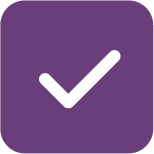Main Menu
Background
Osteoporosis, a condition that weakens bones and increases fracture risk, affects many people worldwide. Women, especially after childbirth and menopause, are at higher risk due to factors like long-term breastfeeding and increased estrogen levels. While many aspects of bone health have been studied, the impact of hormonal contraceptives on osteoporosis risk is not well understood. These contraceptives, used by millions, include options like birth control pills, hormonal intrauterine devices (IUDs), and injections.
Our study explores how factors such a hormonal contraceptive use, breastfeeding and lifestyle choices affect bone health, particularly in women. We aim to analyze data from the Northern Alberta Osteoporosis Program to see if there’s a connection between contraceptive use and bone health indicators, such as bone density and Fracture Risk Assessment Tool (FRAX) scores, which measure fracture risk. Additionally, we will interview women to understand their awareness of bone health risks and contraceptive use.
This project also includes developing a digital health app to help women make informed decisions about bone health and contraceptive options. By addressing a significant gap in bone health research, we hope to empower women with personalized knowledge to support lifelong bone health.
Roles and Responsibilities
We are looking for a patient partner with lived experience of hormonal contraception or those who have sought bone health assessments in the past or who have musculoskeletal issues like osteoporosis. Research experience or health advocacy experience is an added advantage.
The patient partner will support recruitment strategies, provide guidance on ethical considerations, and offer insights into patient-centered data interpretation.
They will also help in refining app content to ensure relevance and inclusivity, collaborate on usability testing, and share essential patient perspective and expertise throughout the project. Their involvement ensures that our approach aligns with patient priorities, fosters participant engagement and enhances the app’s impact on bone health education.
Time Commitment
This project anticipates to start January 7, 2025 and end January 7, 2026. We are looking for a 1-year commitment with online monthly meetings of 2 hours each.
Compensation/Reimbursement
Patient partners will be offered $25/hour as per AbSPORU guidelines for their collaboration. Meetings will be online so there is no expenses for travel or parking.
For more information or to express interest
Oluwakemi Amodu
amodu@ualberta.ca
Let us know how you want to stay connected


 News + Events
News + Events

 Patient Partner Research Opportunities
Patient Partner Research Opportunities

 I agree to receive occasional emails from AbSPORU.
I agree to receive occasional emails from AbSPORU.University of Calgary Foothills Campus
3330 Hospital Dr NW
Calgary, AB T2N 4N1
College Plaza
1702, 8215 112 St NW
Edmonton, AB T6G 2C8
The Alberta SPOR SUPPORT Unit operates on and acknowledges the lands that are the traditional and ancestral territory of many peoples, presently subject to Treaties 6, 7, and 8. Namely: the Blackfoot Confederacy – Kainai, Piikani, and Siksika – the Cree, Dene, Saulteaux, Nakota Sioux, Stoney Nakoda, and the Tsuu T’ina Nation and the Métis People of Alberta. This includes the Métis Settlements and the Métis Nation of Alberta. We acknowledge the many First Nations, Métis and Inuit who have lived in and cared for these lands for generations. We make this acknowledgment as a reaffirmation of our shared commitment towards reconciliation, and as part of AbSPORU’s mandate towards fostering health system transformation.
© 2025 AbSPORU